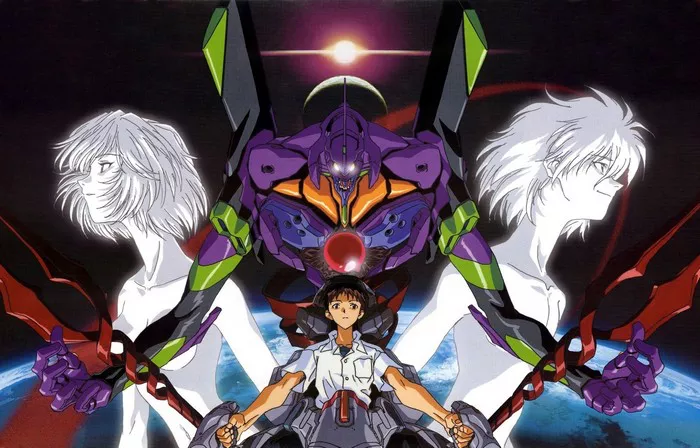Neon Genesis Evangelion, often hailed as one of the most influential and controversial anime series of all time, has captivated audiences with its complex characters, philosophical themes, and dark, psychological narrative. Since its debut in 1995, Evangelion has left an indelible mark on the anime industry and has sparked intense debate and analysis among fans and critics alike. But what is it about Evangelion that makes it so disturbing? In this comprehensive article, we’ll delve into the world of Evangelion, explore its unsettling themes and imagery, and attempt to unravel the enigma of its disturbing nature.
The Legacy of Evangelion: A Cultural Phenomenon
Neon Genesis Evangelion, created by Hideaki Anno and produced by Gainax, first premiered on Japanese television in 1995. Set in a dystopian future where humanity is under threat from mysterious beings known as Angels, the series follows the story of Shinji Ikari, a reluctant pilot of a giant bio-mechanical robot called an Evangelion. As Shinji grapples with his own insecurities, traumas, and existential crises, he becomes embroiled in a conflict that will determine the fate of humanity itself.
Evangelion’s unconventional storytelling, intricate character development, and thought-provoking themes have earned it widespread acclaim and a dedicated fanbase around the world. However, the series is also known for its deeply unsettling and disturbing elements, which have left a lasting impact on viewers long after the credits roll.
Exploring the Disturbing Themes of Evangelion
Several key factors contribute to the disturbing nature of Evangelion:
Existential Angst: At its core, Evangelion is a story about existentialism, identity, and the human condition. The series delves into the psychological struggles of its characters, who grapple with feelings of loneliness, alienation, and worthlessness in a world teetering on the brink of destruction. Shinji’s internal turmoil and self-doubt are palpable, reflecting the existential angst that pervades the narrative and resonates with viewers on a deep emotional level.
Psychological Trauma: Evangelion explores the psychological trauma and emotional scars inflicted upon its characters, particularly the young pilots who are thrust into the heart of the conflict against the Angels. As the series unfolds, viewers are confronted with scenes of intense violence, graphic imagery, and disturbing psychological imagery that evoke a sense of unease and discomfort. Themes of abuse, abandonment, and mental illness are central to the narrative, adding layers of complexity and darkness to the story.
Symbolism and Allegory: Evangelion is renowned for its rich symbolism and allegorical imagery, which imbue the series with deeper meaning and interpretation. From religious iconography to Freudian symbolism, the series draws upon a wide range of cultural and psychological references to explore its themes of identity, trauma, and transcendence. The surreal and dreamlike nature of many scenes adds to the sense of disorientation and unease, leaving viewers questioning what is real and what is imagined.
Deconstruction of Mecha Genre: Evangelion is often regarded as a deconstruction of the mecha genre, subverting many of the tropes and conventions typically associated with giant robot anime. Rather than glorifying the spectacle of giant robot battles, Evangelion portrays the psychological toll of piloting the Evangelions, blurring the lines between man and machine, hero and villain. The series challenges viewers to confront uncomfortable truths about power, agency, and the consequences of war.
Impact and Controversy: Evangelion’s Enduring Influence
Despite—or perhaps because of—its disturbing nature, Evangelion has had a profound impact on the anime industry and popular culture as a whole. The series has inspired numerous spin-offs, sequels, films, and multimedia adaptations, cementing its status as a cultural phenomenon that continues to resonate with audiences worldwide.
However, Evangelion’s provocative themes and imagery have also sparked controversy and debate among viewers, critics, and scholars. Some praise the series for its bold storytelling, innovative animation, and thought-provoking exploration of existential themes. Others criticize it for its graphic violence, sexualized imagery, and portrayal of mental illness and trauma.
Conclusion: Deciphering the Mystery of Evangelion’s Disturbance
In the end, the disturbing nature of Neon Genesis Evangelion is a reflection of its creators’ willingness to explore the darker aspects of the human experience. Through its complex characters, philosophical themes, and surreal imagery, the series challenges viewers to confront uncomfortable truths about themselves and the world around them. While Evangelion may not be for everyone, its impact and influence are undeniable, leaving an indelible mark on the anime landscape and inspiring generations of creators and fans alike to explore the depths of the human psyche.


